Mitch Barnhart's N.I.L. Press Conference

With major changes coming to college athletics and Kentucky governor Andy Beshear’s new executive order granting Name, Image, Likeness rights to Kentucky’s student-athletes, UK athletic director Mitch Barnhart held a Friday afternoon press conference to discuss how UK is handling the fast-paced transition into the new world. A perfect opportunity to express the university’s excitement for its student-athletes, Barnhart instead took a different approach.
“I think the journey is a long one,” Barnhart said, in his most unenthusiastic voice. “I think we gently begin to walk the journey, and that’s what we’re trying to do here. We’ll take gentle steps and not rush into mistakes.”
Watch as a man who clearly doesn’t support NIL, talks about NIL coming to his university. You can read all of his comments below the video.
Introduction: Thanks to everyone for joining this afternoon and we’ll try to be efficient with it. First, would like to thank Governor Beshear and our friends in the legislature for their help in working through a new paradigm in what is going on in college athletics and what is going on in our world. Yesterday was a first step in a new journey and I’d like to thank Governor Beshear for working through the conversations that are so difficult to get to a spot where we’re able to do this for our student-athletes. I also want to thank our coaches, Coach Cal and Coach Stoops and Coach Elzy for their advice and their counsel through all this. I’d like to thank our coaches in general and I’d like to thank our staff and Rachel Baker for her incredible efforts and the people in our university administration and our student-athletes, who patiently sort of watched and said okay, how does this all come together as we continue to try and find the landscape and get everyone in a comfortable spot as we move forward. With that, I’ll stop and begin to walk through some questions and give you some time to get your questions answered.
On who makes the decision on what is an acceptable endorsement and what the penalties are for a player that signs an endorsement that isn’t approved…
Barnhart: A lot of hypotheticals. We’re in the early stages of putting all those pieces together and I think it’s really important as we walk through this to understand what yesterday was and what yesterday wasn’t. Yesterday was the first day, and it sort of gave us the ability to step forward with policies and with procedures and I think the journey is a long one. We’re still awaiting NCAA governance next week. They will probably come through with some new language in some way, shape, or form as to what that is. This is a bridge that gets us to January when we can put legislation firmly in place through the state legislature in January. The last piece is obviously, the hope is at some point there will be federal legislation which ties all 50 states together and gives us the opportunity to all sing from one hymn book. So to sit here and say that our parameters today answer all the questions forever would be probably be really not a good place to start. I think we gently begin to walk the journey and I think that’s what we’re trying to do here and as you know, we’ve done most of our work here, we’ll take gentle steps with this and try to find a way not to rush into mistakes.
On what the process will be for student-athletes to get endorsements as of July 1…
Barnhart: In terms of guidance, we’ve worked through a lot of pieces leading up to this. We’ve got a piece of our educational process that we put all of our student-athletes, we walk them through, it’s called Kentucky Road. It’s part of our New Kentucky Home. When they come to our program, we walk them through those pieces as they relate to how they brand themselves in terms of their lifelong branding as it relates to their social media, as it relates to financial literacy. All of those pieces. Those are educational pieces that are currently in place for us.
As they get into these kind of conversations, obviously, that’s going to start probably in the area of our compliance office. I don’t know if that’s what it’s going to be called. There might be another name for it as we go forward. We’ll always have compliance as it relates to our NCAA compliance but we may reframe that window. Rachel Baker will be the lead person as we talk through tehse challenges and the new era we’re in. She’ll work at that and that’s the starting point. There will be a clearinghouse. We’ve got software and all of that that’s in place that will be a part of this. We’ll obviously have some sign-offs and things we’ll sign off too and work our way through that. It’s the protection of the student-athlete and it’s the protection of the institution. So really, really important. With these new rights come massive responsibilities. It’s important that we marry those two things together, the rights and the responsibilities are together in the right spot.
On what he believes the marketplace will be like, specifically in regards to Kentucky Basketball players and what the impact will be on college athletics moving forward…
Barnhart: I think that’s a very hypothetical question so for me to speculate would be very difficult. I think there is opportunities out there for some folks that will be probably greater than others and I think the challenge will be multiple in that it’s going to make sure — the focus, I hope, of our young people begins with their educational experience and they continue to want to be educated at an institution of higher learning. The second thing I would hope is that they would want to maintain the relationships and the reason that they came to an institution of higher learning, especially at a Division I level, to play college athletics in the Southeastern Conference or wherever that would be, that those are their two mission statements, and out of those two pieces, allows them to have this incredible opportunity to do a third thing, which is monetize some of the things that come with their name, image, and likeness. Hopefully we can begin to prioritize those things in some way, shape, or form for our young people to be able to understand how that all comes together in a package. I think there will be some opportunities for some young people will be greater than others and the relationship for all of those folks in a locker room is going to be really, really important to find a way to make sure you maintain that and that doesn’t become the focus rather than the ability to go out and do something really, really uniquely cool together competitively. I think it’s a challenge but we’ll continue to work at it and educate. I think education is going to continue, but that’s the third pillar of our priorities at Kentucky is to be lifelong learners and to educate. This is a new area for us to both be educated and for them to be educated and I think it’s really, really important because, again, this is new ground for everyone.
On if he’s aware of any student-athletes with prospective deals waiting for July 1…
Barnhart: You know, I think you hear a lot of things that are areas that people in the new world of social media, the new world of the different avenues to do that, I think there are things we’ve been made aware of in terms of things that might be available to our student-athletes. How that gets monetized and who gets to monetize those is really interesting. Again, it’s foreign territory for me as a person that’s not something that I enjoy and it’s not something that I’m going to take advantage of, but I know our young people might want that opportunity and if they do, we’ve got to figure out a way to help them understand both sides of what it means to sign their name and their image and their likeness to that and what that can look like and the expectations that go with that. I think we just continue to work through that. Again, Rachel [Baker] has done a remarkable job of getting us prepared, but we’ve been doing this a long time in terms of preparing our young people for the new world as they leave Kentucky. Now we’ve just fast tracked it and they’re going to get a bigger idea of what it looks like while they’re at Kentucky. So I think that it’s certainly a changing landscape.
On what he believes the biggest obstacle to NIL is, what he’s most worried about and what keeps him awake at night…
Barnhart: John, there’s a lot of things that keep me awake at night. This is a piece of a bigger puzzle. For anyone to sit here and say, we’ve been on one polar position of never wanting to do any of this to having the door wide open and all of a sudden now we’re in this incredible new landscape and it’s 100 miles per hour, I think finding balance in all of this will be really, really important. Finding a way to walk through this with our young people. I think that those that are thoughtful about how they do this have an opportunity to do some really remarkable things that would be uniquely different for them and help set them up for live after athletics. We always talk about how many people actually go pro in the landscape, it’s very few. There’s people out there, and I go to the young woman who has the most social media of anyone in our department and I would venture to say most of you don’t know that, it’s Masai Russell. Masai Russell has the largest social media following of anybody in our department by far. It’s not close. But she doesn’t wake up everyday just rolling out and saying okay, who all is going to join me? She works at it. She works at it not because she’s a tremendous track athlete — and by the way, she is — she works at it because she’s found a way in what she’s trying to do for a life beyond track and field to be able to put something together for her. That’s the kind of thoughtfulness that it will take for us to be able to watch them, help them, for them to be able to help themselves, and find their way to this unique spot. And that’s really, really a cool thing.
On how the executive order came about and if UK collaborated with Beshear on making it happen…
Barnhart: I think there were a lot of folks involved. The Governor reached out on a couple of occasions to a variety of folks in the UofL department and UK’s department. Had really candid conversations with Coach Calipari and Coach Stoops and myself on our side. I thank Cal for his leadership in this. He’s been really — he’s thoughtful. We all know how thoughtful he is on a lot of these issues and making sure the student-athletes are always at the forefront of our conversations, which we’ve done that for years, we’ve always been at the forefront of conversations for the University of Kentucky. I think that’s why our department is steadily moving forward as we’ve built a culture of students first. It’s been 500 student-athletes strong. It’s not just about ten athletes or 15 athletes or 80 athletes; it’s been about all of them. Cal is aware of that. To his credit, he said how can I help and he had conversations and I think all of it was brought together and realizing we were coming up on a date on July 1. There was great hope that there would have been federal legislation that would have occurred by then. It did not occur. It will not occur by July 1. I do have hope that there will be federal legislation going forward. I think that will be incredibly important to tie all 50 states together. And then it became apparent that the NCAA — although my hope is that Monday or Tuesday when the Council meets again, that will get firmed up and give the other folks who don’t have the luxury of a state bill or an executive order or anything like that that they’ll have the opportunity to let their student-athletes also participate nationally.
On if he worries this will create a bigger gap between the Power 5 conferences and the non-Power 5 based on exposure and what the NCAA might look like 10 years down the road…
Barnhart: That’s a great question. I don’t know. The landscape has changed. I’ve been an athletic director for closing in on 25 years and if you’d have told me in 1998 that the landscape would be where we are today, I don’t know if I would have believed it but that landscape has changed dramatically as social media has changed and as opportunities are changing. I don’t know that it’s really easy for me to speculate where we’ll be in ten years. I think the landscape in most of the things we’re doing is changing fairly rapidly. I think that we’ve got to be fluid. I think what happens is, again, people jump to polar positions in almost everything that they do. Rather than trying to find balance and being steady in these conversations, we jump to a position of, oh my, we’ve got to grab onto this before the train leaves the station rather than, alright, let’s take a breath, let’s pause a little bit and make sure we find the right pathway, a steady pathway through this and walk it together. So, that’s my encouragement for our folks is that we don’t jump into areas that we can’t come back from.
And same for our student-athletes. I don’t want them to make mistakes. I don’t them to make lifelong mistakes. All of a sudden you attach your name to something and it goes horribly wrong for you and all of a sudden you regret that for a good long time or it affects your family, it affects you personally. Those are things we’ve got to help — as much as it’s guarding our department and our university and those things, we’ve also got to guard our young people. That’s incumbent upon us. They’re 18-22 year olds and I know they’re really, really bright people but I also want to make sure they’re ready for the next steps and it’s important that through our Kentucky Road and our educational pieces, the financial literacy we have in place, how you brand yourself going forward, your social media, all of those things we talk about, how do we make sure we do a good job of protecting our young people? For me to speculate where we’re going to be in 10, 12, 15 years, I don’t think anyone — if anyone says they can do that, they’re really, I don’t know that they can do that.
On NIL potentially leading to bidding wars in recruiting…
Barnhart: I do believe that what you’ve got is a new paradigm for where we are in college athletics and we’re going to have to be attentive to that. I do believe at the end of the day, we’re still a relationship enterprise. If a young person, if the only reason they’re coming to an institution is because of their NIL deal or their opportunity to do that, then I don’t know where you establish your relationship. Your relationship with your coaches, the relationship with the other teammates in your locker room, I hope, continue to be first and foremost as we try to build quality departments and quality teams, and have quality experiences and we’re having national championship opportunities like we did in volleyball. I will assure you, our volleyball team was amazing on the court. Absolutely incredible, and brought home a national championship to the Bluegrass. And I’m sure that in the back of their minds as they left the court, there was probably a couple of them that said, ‘I wonder if my name, image, likeness,’ but when they took the court, that wasn’t their first thought. Their first thought was, how do we raise a trophy for each other? I hope that continues to be the reason we choose and the reason that we play and the reason that we compete together and we join together in locker rooms is that relationship and the ability to share moments that are incredibly special but out of that, we are allowed to have unique opportunities that avail themselves because of what we do. And so, we’re a relationship, team-oriented enterprise that I hope continues to be the reason that we have people that want to be a part of our program.
On whether UK has a legal standing on telling a student-athlete what they can and cannot endorse and if he foresees that being written into future scholarship offers…
Barnhart: On the last part, I don’t know how the scholarship offers will look in the future. I think that will all depend on NCAA policy as well and how that language comes out in the next week or months. Again, this is Day 1. We’re not even in Day 1 of July. July 1 will be Day 1. Again, we’re in the early stages of the marathon so for us to be able to say what the policy is, again, we’re in the early stages. I think we’re getting close to finishing our policy. We’re obviously going to have something to share with our student-athletes. We wanted to get the language right with the executive order with the Governor and his staff and work with them on that. That process has been completed and now we can work through the policy and have the opportunity to share that with our student-athletes but obviously, we want to be able to protect all 500 student-athletes in this process. That’s important. We want to make sure that’s a part of our conversation. There’s no one in our department, when I speak to our student-athletes, that’s going to say, you know what? I’m going to go do something without some knowledge that it could cost or hurt someone in their locker room or someone in a different locker room. There’s no one doing that. No one starts in that spot, so we want to make sure we do a good job of protecting the things that allow us to provide for 22 sports teams, 500 student-athletes and continue to move the experience forward. There are young people in our program that have no interest in this. This is not something that they’re interested in. And there are some that are going to be very interested in it. And we’ve got to make sure we meet both those needs.
On the process of a student-athlete getting an endorsement and if any have indicated they are doing that as of July 1…
Barnhart: There would be a process involved and they would need to walk with us through our compliance department or however we brand that department as part of that conversation and register those things with us. Then we would also be able to walk with them on it. We’ve certainly had some student-athletes that have said, hey, I’ve got a couple of ‘What Ifs” so we’re saying, okay, as of July 1, we can begin to have real conversations as to what those can be and how they’re set up but up until that point in time, press pause and give us five more days and then we’ll walk through this together.
On if coaches have limits as to how much they can discuss NIL in recruiting…
Barnhart: All I think that we’re saying to folks right now is, they have an opportunity because of the NIL legislation that’s been enacted by the Governor, we now have an opportunity to say, we can help you with that. We can show you what that looks like and how you can best use the pathway forward but there is, that is not part of our recruiting piece in terms of, these are the deals that you have. That is not part of this conversation. The conversation is, these are the things that are now available under legislation. There is more legislation to come but Kentucky is participating in the name, image, likeness legislation, as are 23, 29 other states at this point in time and essentially everyone will be in this conversation. I would very much say by the end of next week when the council meets, the legislation that will get passed will probably allow everyone to have a window forward.
On his evaluation of the 2020-21 men’s basketball season and whether or not he encouraged Calipari to make the changes in the program we’ve seen this summer…
Barnhart: It’s obviously been a long time since basketball. I think you guys have probably written and talked about it an awful lot. Obviously, it’s not where we want to be. Our goal is to hang banners in Rupp Arena and win No. 9 and bring that back to the Bluegrass for our fans. We will be supremely focused on that and I just encouraged Cal to take whatever steps he needed to do within what he thought was best for our program in moving forward and to get us back to the spot where we know we belong. That’s the place we’re comfortable is talking about deep runs in March and that’s who we want to be. We went through a really difficult year with COVID. It was a challenging year from a lot of perspectives, with a team that was fairly new and together in terms of their togetherness, had some problems getting to the finish line and gelling. Not what we wanted, but we’re supremely focused on No. 9 and getting back to obviously New Orleans, it would be a wonderful reunion back there in March of next year. That’s our focus.
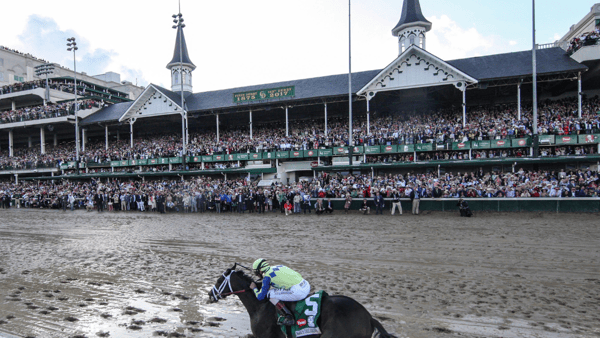
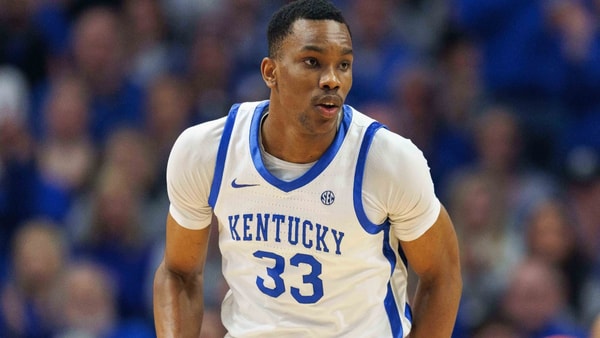
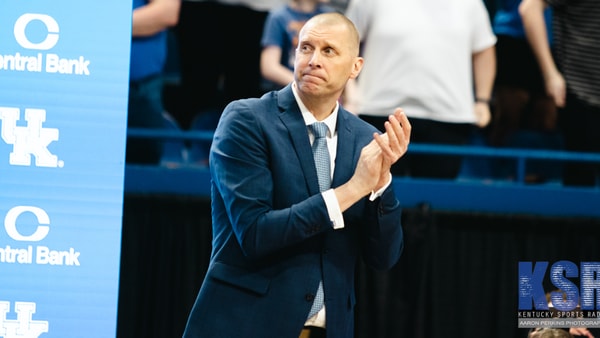
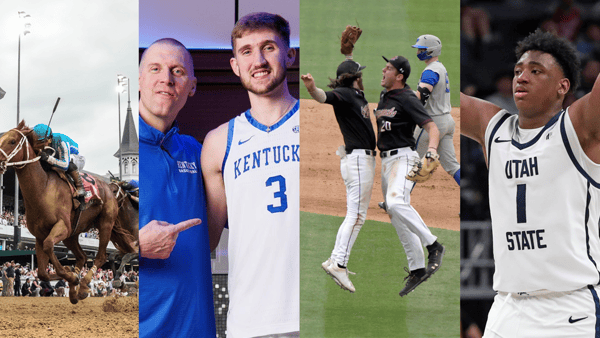
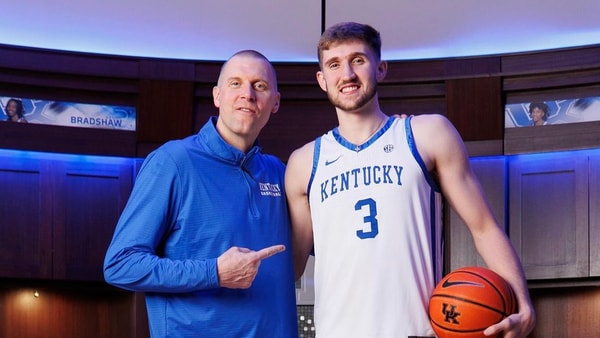
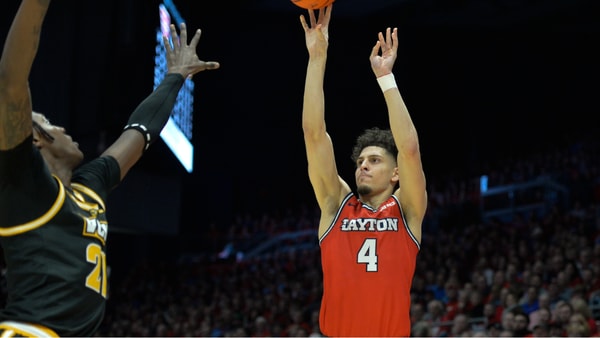
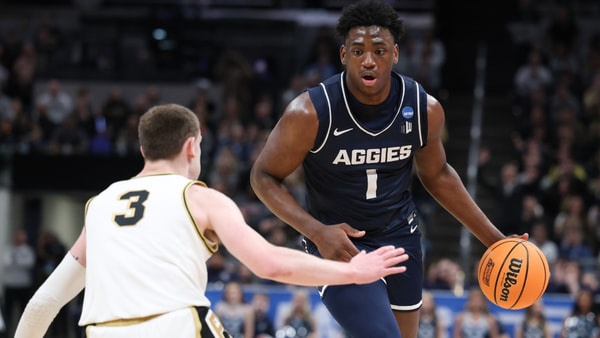
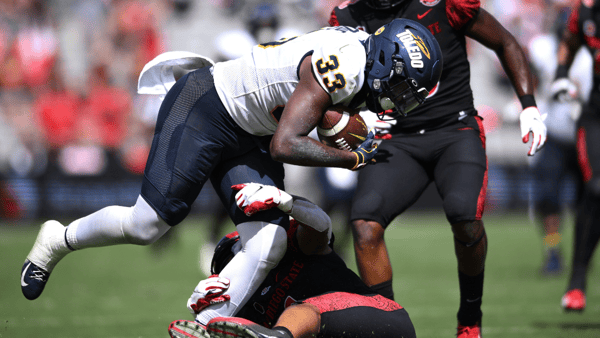
Discuss This Article
Comments have moved.
Join the conversation and talk about this article and all things Kentucky Sports in the new KSR Message Board.
KSBoard